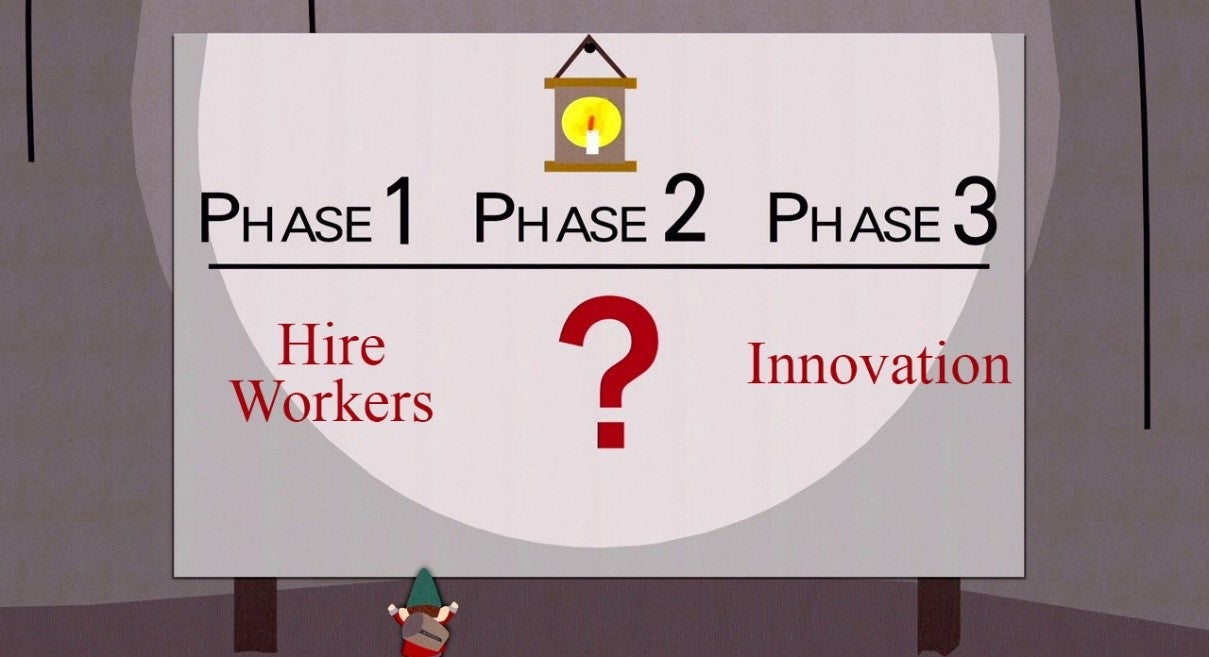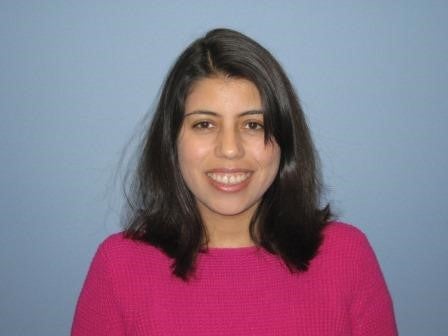
At its peak, the Manhattan Project employed over six thousand scientists and engineers. Engineers working on the Barcode were unsure if its development was possible. Taco Bell’s Doritos Locos Tacos required thirty stages of development.
Look at many of history’s greatest – and tastiest – innovations and you’ll see three features characterizing their development: collaboration; uncertain feasibility; and many stages to completion.
Given this, how should innovative workers be paid? And is there a best payment scheme? Those are the questions Assistant Professor Sofia Moroni answers in her work, “Experimentation in Organizations”. And the answer to the second question is yes – there is a best payment scheme, and its intuition is straightforward.
But before getting to what the best payment scheme looks like, a brief primer on how Moroni approaches this problem.
Games, Contracts, and Theory
Moroni is an economic theorist, researching game theory and contract theory.
Game theory (which Pitt offers classes in every semester) models strategic interactions between decision-makers. For example, when Coke and Pepsi set their prices, they do so with the understanding that their sales also depend on the other’s prices; Coke considers Pepsi’s motivations when setting their own prices, and vice-versa.
In game theory, after each decision-maker makes their choice an outcome is realized, with each outcome resulting in payoffs to each decision maker. In the Coke-Pepsi example an outcome would be the number of bottles each sells, and the payoffs would be the revenue to each.
Contract theory has a similar setup to game theory, but a different objective. In contract theory the goal is to design the payoffs associated with each outcome, and to do so in a way that incentivizes decision-makers to make a specific choice.
Consider a board of directors that is determining how to pay its CEO. The CEO is the only one who decides – and knows – how hard they work. The board wants the CEO to exert maximal effort, so the board closely ties the CEO’s pay to company profit (representing the outcome here). The CEO understands this ahead of time, which motivates the CEO to work hard (i.e. make the choice the board wants). That’s an example of the problems contract theory addresses.
“Experimentation in Organizations” addresses the problem of paying innovation-workers.
How to pay for innovation
Moroni models workers who have to decide how much effort to exert on each stage of an innovation project, while not knowing whether completing that stage is even possible. Making a few assumptions about worker objectives, Moroni is able to translate the model to math, and then to solve for an optimal payment plan which balances the benefits from innovation against the costs of workers’ efforts.
What she finds is that an optimal payment scheme consists of two types of rewards.
The first reward – which is dubbed “procrastination” – is to prevent workers from delaying their effort. If all of your coworkers are exerting themselves to try to complete a task which may be impossible, then you’d be tempted to delay your own effort; seeing the others struggle with the task would tell you whether it’s worth even trying to complete it. Therefore, there needs to be a reward to incentivize you – and all the other workers who are thinking the same thing – not to procrastinate. Hence, reward payments should be large at the start of a task.
The second type of reward needs to quell the “public good” problem. In a multi-stage project, as soon as one worker completes a task, all other workers can move on to the next task. In that way, a completed task is like a public good: its completion is free and available to all other workers to build on. But this creates a free-rider problem where all workers will want to work hard on late-stage tasks but expect colleagues to complete early tasks for them. Moroni shows that providing a higher reward for early-stage tasks can fix this.
From Chile to Posvar
Moroni joined the Economics Dept in 2015, after completing her PhD at Yale University. Originally from Chile, she has research on auctions and game theory, in addition to her work on contract theory. In the Department, she teaches courses in mathematical economics and microeconomics, including the first-year graduate courses in both subjects.

